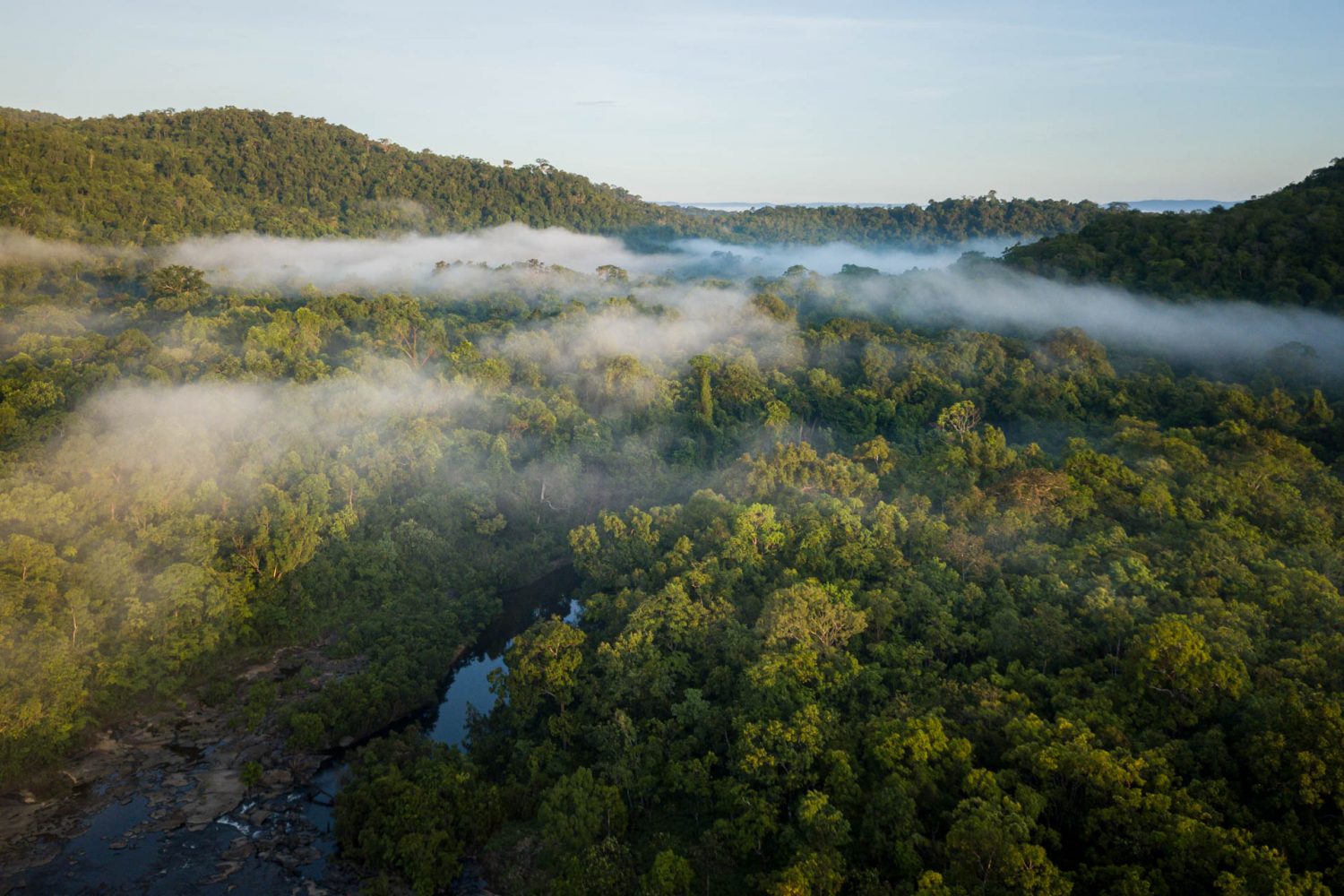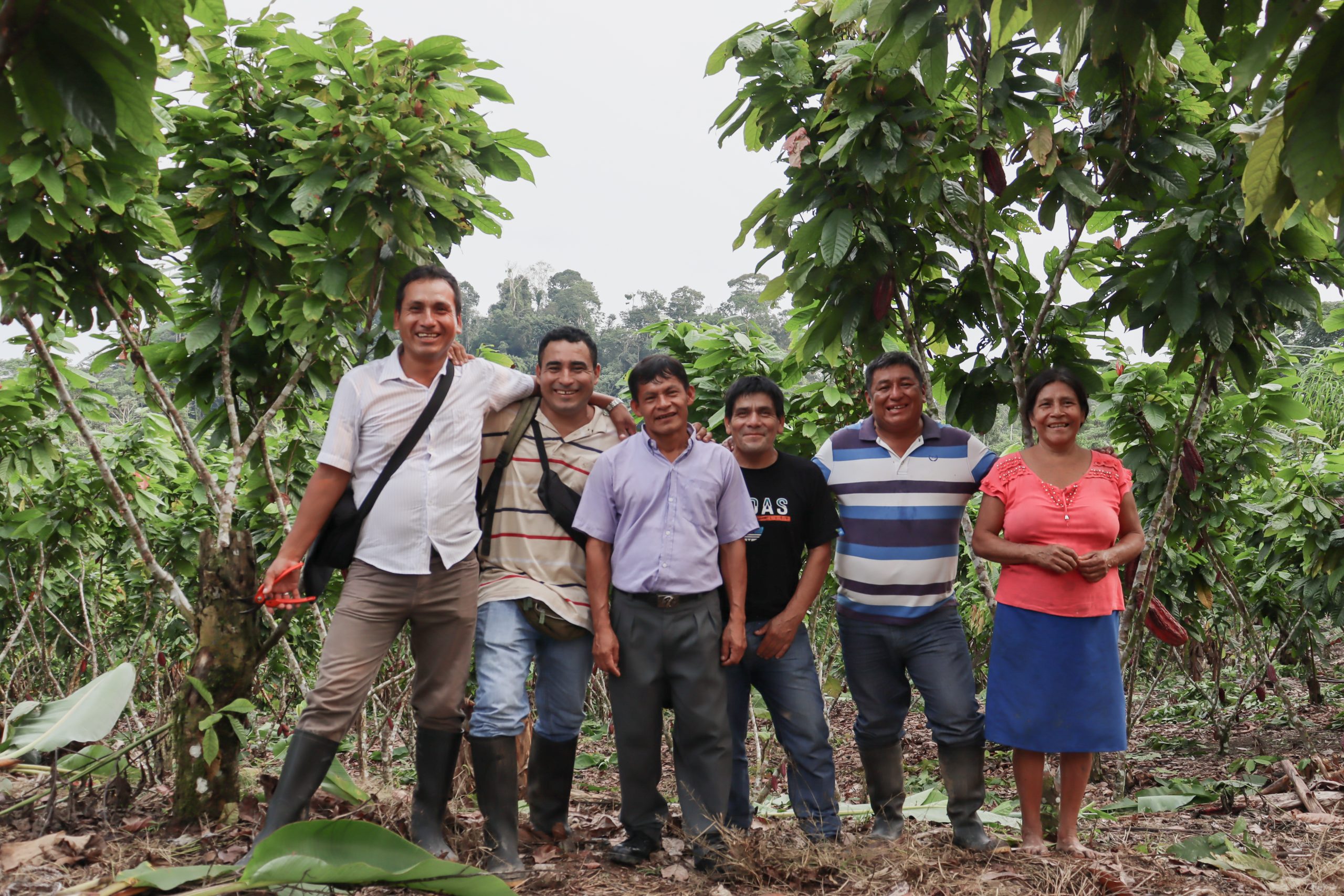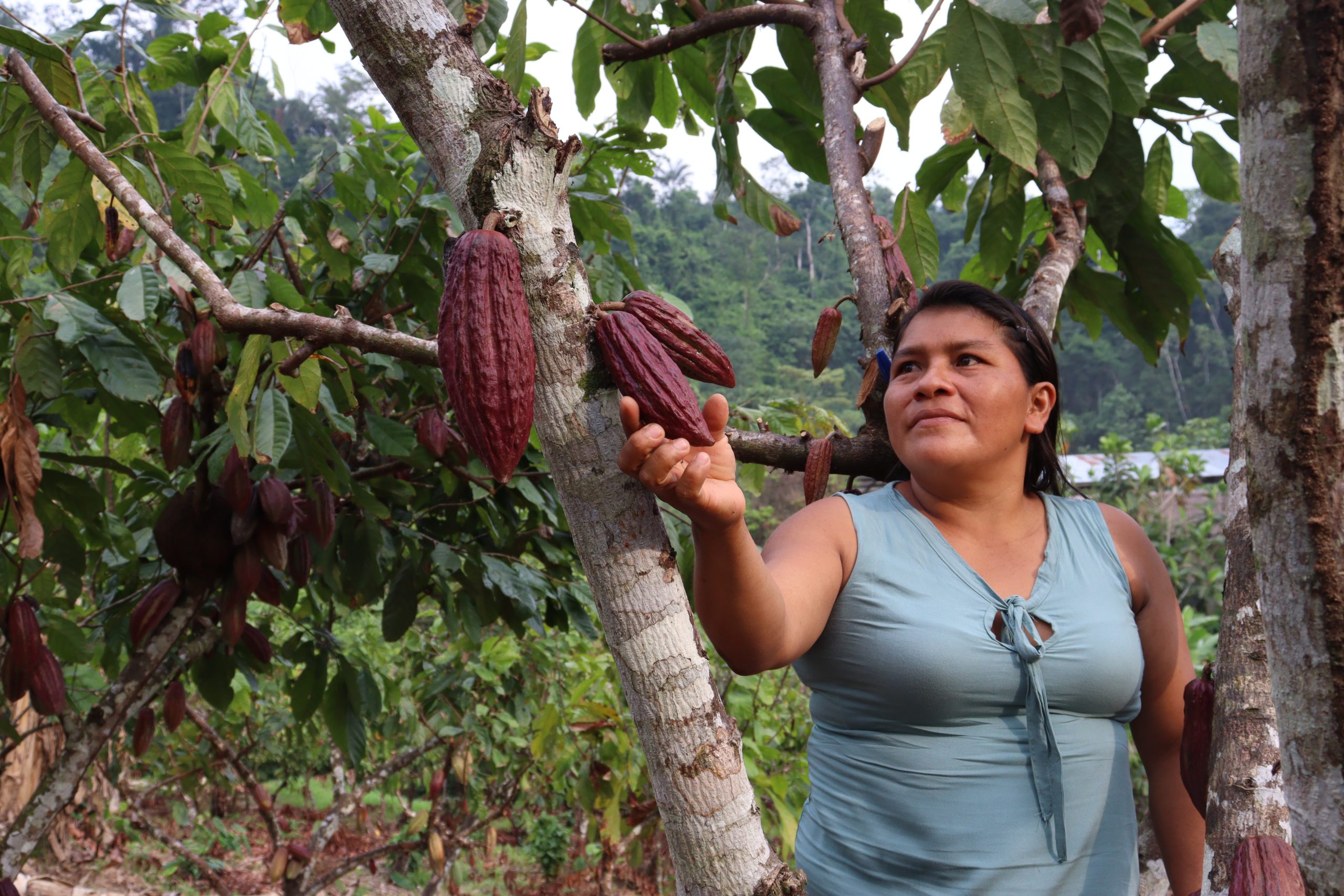
Léna Prouchet on Indigenous entrepreneurship
What comes to mind when you think of an entrepreneur? Generally, the usual suspects. Elon Musk, perhaps Bill Gates, etc. What about those people who live in the heart of the Peruvian Amazon?
Léna Prouchet, a PhD student at the University of Exeter working in collaboration with Cool Earth would argue that Indigenous Peoples have been entrepreneurs for millenia. Léna recently returned from Peru, where she spent three months looking into the cacao project led by Cool Earth in an Awajun village near the border with Ecuador, with an ultimate goal to share recommendations to refine the design and implementation of agricultural projects supporting Indigenous Peoples.
In a recent podcast, Léna was invited to discuss her research topic and some of her key findings, and we’d like to share some of what she said below in her own words.
Indigenous Entrepreneurs
For a long time, research into what entrepreneurship is has been dominated by what I call the ‘Elon Musk’ type of entrepreneur. I think if you go out in the street and ask people what is an entrepreneur, they always have this idea of someone with a shark mentality who focuses on maximising profits. This is the common Western view of entrepreneurship.
But people need to realise that there are more than 1 billion entrepreneurs in the world, who are this way by necessity because they have no option for employment or adequate support from the State. I work with people who grow and sell cacao. They are entrepreneurs. But research has ignored them for a very long time.
A relatively recent stream of research called “Indigenous entrepreneurship” seeks to address this gap by highlighting the fact that Indigenous Peoples have been entrepreneurs for millennia, working for themselves and doing business that involves the whole community. Their entrepreneurship not only has economic objectives, but also environmental and social ones too.
In practice, I found that the entrepreneurs I was working with did not exactly match what the “Indigenous entrepreneurship” has been emphasising. Locals did primarily seek to generate an income through cacao culture to address their basic needs, but preserving some aspects of their lifestyle, and especially participation in social activities appeared more important than gains maximisation.


Cacao technical team Lenin and Moisés alongside the promoters (community members contracted to help with the cacao project) Amos, Juan and Javier in Doris Wejin Weepiu’s plot in the Awajún communtity of Huaracayo, Peru.
External partner perspectives on Indigenous development and lifestyles
On one hand it feels like external aid models are enforcing modernisation on Indigenous communities, saying “you’re two centuries back and we’ll help you get on the train”. But to completely reject modernisation is also to impose something. When I was in the communities, I realised that there was a desire to have access to the internet and modern technology, but also good health and education systems. The problem with rejecting modernity altogether is that communities are told to “stay as you are”, frozen in time. This is something often imposed by researchers, often based in the West, who project ideals and romanticise Indigenous cultures. We must be careful not to fall into the two extremes.
I think you have to start by asking Indigenous people what they want. You would think this would be the norm but in fact it is not.


Cania is a participant of Cool Earth’s cacao programme in Urakuza, an Awajun community in Amazonas, Peru.
Cool Earth’s approach
I’ve had lots of discussions with Cool Earth and they have always shown a desire to evolve to be the best possible partners to the Indigenous and local communities that they work with.
What Cool Earth has decided to do is not to start new projects and programmes, for example cacao farming, by saying that they are going to revolutionise the whole process. They instead look at what work has already been done and aim to continue such activities that previous organisations had started but left in the middle.
Usually, these projects such as cacao farming arrive already defined, and people work with the project for three years, even two because it takes a year to plan and then evaluate and close the project down. And when one project ends another arrives.
Instead, Cool Earth has been working on a cacao programme for eight years that has no end date, which makes a big difference. A cacao tree when it is planted, takes two and a half, three years to bear fruit. So when a project is set up to last only two or three years, local people say it’s problematic as the projects often stop before they even start harvesting the crops.
Another challenge of these interventions is that they tend to be defined in advance, with little to no consultation of local participants. Establishing genuine participatory approaches is highly complex and requires time and resources. Léna is currently working on key recommendations for Cool Earth in order to further participatory processes with their partners and ensure the majority can benefit from its support.
Working with experts like Léna’s helps us to continually evaluate and learn as a charity and improves our global programmes. To hear more from Léna, check out this recent blog, or for any french speakers have a listen to the podcast here yourself!
